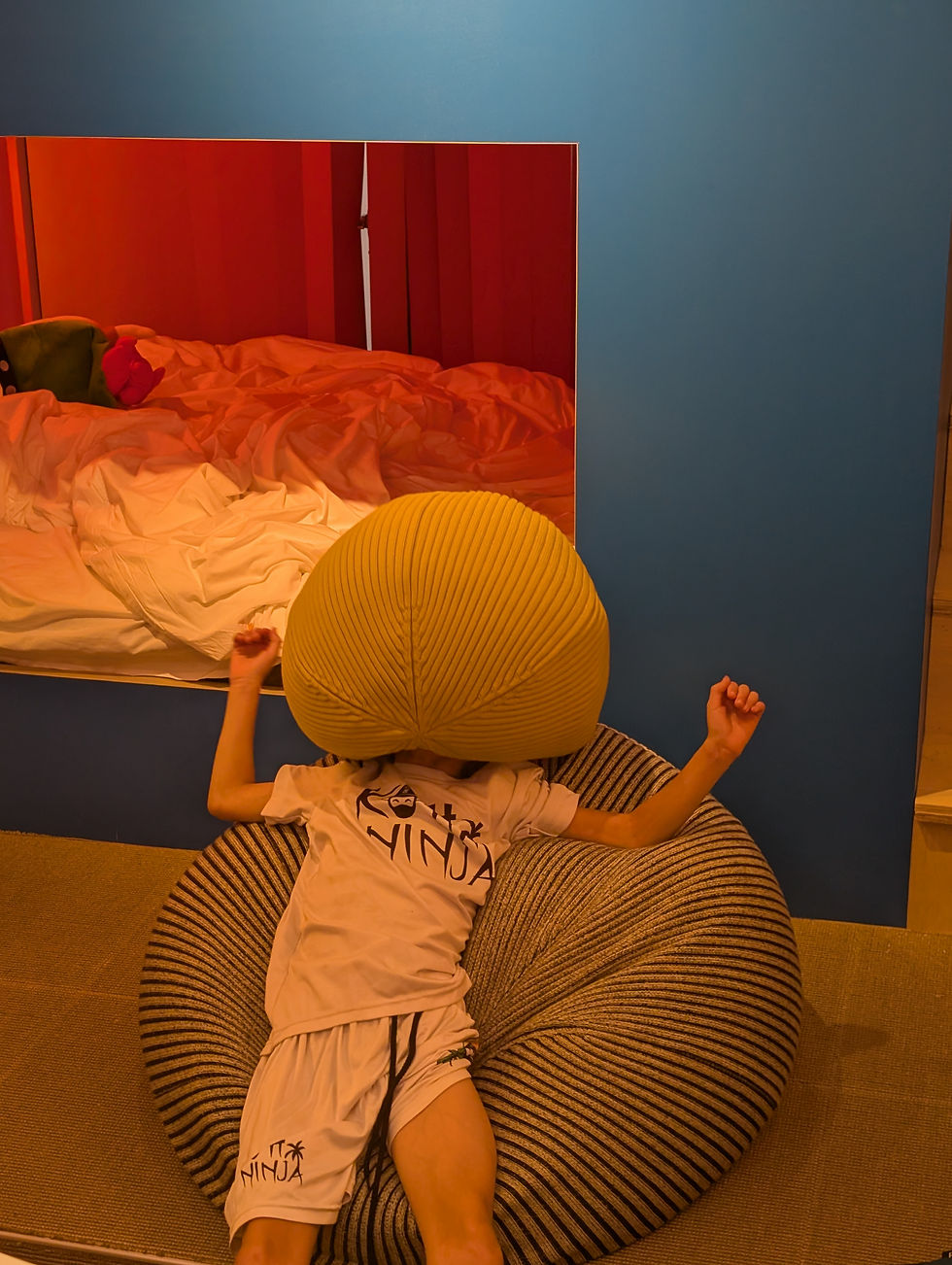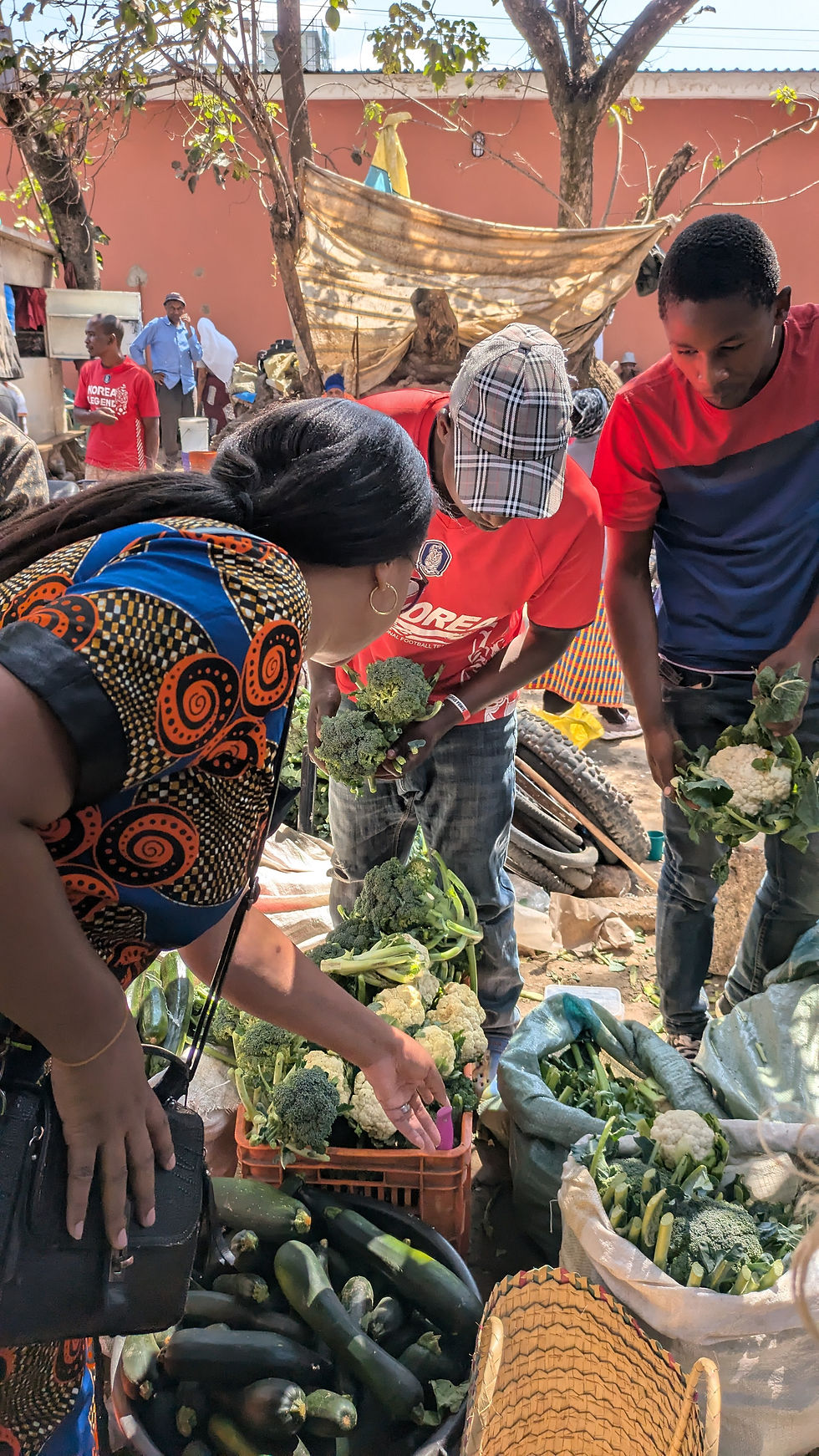Life on the Move: Lessons in Flexibility and Perspective
- Eliana Lipsky
- Oct 16
- 4 min read
Over the course of our year traveling as a family of six, we stayed in 25 countries, 75 cities, and countless beds. Sometimes we stayed for just one night, sometimes for two weeks. Our backpacks and carryon duffle bags became the most permanent things we owned.
Our first stop was Iceland, and I still remember walking up to the second floor of a home behind a cluster of houses, nervous about what we’d gotten ourselves into. On the surface it looked nice enough, but the shower was icy, the rooms felt crammed, and the drinking water smelled like sulfur. After taking it all in, I realized this year would be an exercise in practicing what I preach: we can only control our actions and our words, not everything around us.
Over time, I acknowledged that the space itself mattered less than what we made of it. In Tokyo, for example, we lived in a house that felt like a puzzle. A queen bed was tucked into an open staircase. To get to the washing machine, we climbed through a loft window and stepped over mattresses. The toilet room was basically wedged into the kitchen — a 180-degree pivot and you were there. It was awkward and tight, but our kids loved it. They turned the staircase into a launch pad for jumping onto beanbags. Where I saw quirky design, they saw adventure. It made me wonder how often adults, such as leaders and parents, enter a situation looking for what’s wrong instead of what’s possible.

Our kids modeled what every good coach knows: curiosity shifts perspective faster than control ever could. However, this doesn't mean I was always able to accept each new space we entered. Upon reflection, I realized that my willingness to remain flexible and adaptable was highly dependent on my mood. Feeling great and excited when we arrived in a new space meant I was ready to accept it and overlook any glaring problems. Feeling anxious or exhausted, all I could see were the problems. Sometimes it took a full day to shift into a flexible mindset. In complete honesty, no matter how flexible I aimed to be there were a handful of spaces and experiences that left me disappointed.
And then there was the houseboat. On paper, it sounded whimsical. In practice, it reeked of sewage, the electricity failed, and I was unlucky enough to sleep with my face next to the toilet tank. We lasted as long as we could, but after three days of a non-working toilet and advice from fellow mariners, we threw in the towel and bailed much to our children's dismay. Two weeks later we learned we had brought bedbugs from the houseboat home with us. Nothing says “bonding” like deep cleaning all personal affects while scratching in unison. That houseboat became my lesson in humility and problem-solving: sometimes the only thing to do is name what’s not working, laugh if possible, and move on. Not every situation can be fixed, but every situation can teach us something about resilience and team dynamics, especially when the “team” is our own family.
Not every place was dramatic. Sometimes it was just quietly uncomfortable, like an apartment in Buenos Aires that looked fine at first glance but was layered in dust and smelled faintly of sewage. Other times, it was the opposite: plain on the surface but functional and cozy once we settled in. It reminded me of teams I’ve worked with. Sometimes the glossy ones fall apart under pressure, while the unassuming ones quietly hold it all together. Which is which is only apparent when the pressure rises.
Through it all, our kids adapted better than we did. When Chaim or I would groan about a place, they’d immediately chime in with the upsides — “it’s like camping!” or “this is fun!” They reminded us, over and over, of the flexibility we were always preaching. Their ability to reframe on the spot was a masterclass in mindset. It’s one thing to teach resilience; it’s another to watch it modeled back.
Eventually, I found my own ways to create a sense of control. If we stayed longer than a night, I’d unpack my carry-on. If it was just one night, I’d at least hang my toiletry bag in the bathroom so I knew I could find what I needed. Groceries were always the first mission after arriving in a new city. Having food in the refrigerator and available anchored us more than furniture. And yes, sometimes that meant kashering a kitchen before we could even sit down. These small rituals became my grounding practice. The leadership equivalent of exhaling and pausing long enough to breathe for a moment before reacting or responding.
Even on the move, we can create stability through routine. In uncertainty we can claim small moments of order. Life on the move taught me a lot. Stop sweating the small stuff (at least most of the time). Notice how many ways there are to arrange a life. Recognize my own privilege because my family assumes we will always have things like potable water, heating and air conditioning, reliable plumbing, and BOTH a washer and dryer.
But maybe the most important lesson was this: home or belonging isn’t about the walls or the beds or even the plumbing. It’s about what we do the moment we arrive: how we claim the space, respond to the uncomfortable or new, and choose to see the challenges ahead. Sometimes it smelled like sulfur, sometimes like sewage, sometimes like nothing at all. But it was ours, for that night, that week, that day. And maybe that’s the essence of both travel and leadership. Learn to make meaning and help others do the same, even when nothing around us is permanent.



Comments